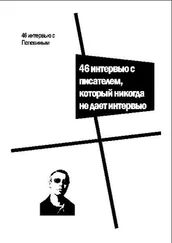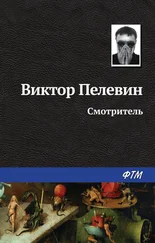Виктор Пелевин - Babylon
Здесь есть возможность читать онлайн «Виктор Пелевин - Babylon» весь текст электронной книги совершенно бесплатно (целиком полную версию без сокращений). В некоторых случаях можно слушать аудио, скачать через торрент в формате fb2 и присутствует краткое содержание. Жанр: Современная проза, на английском языке. Описание произведения, (предисловие) а так же отзывы посетителей доступны на портале библиотеки ЛибКат.
- Название:Babylon
- Автор:
- Жанр:
- Год:неизвестен
- ISBN:нет данных
- Рейтинг книги:5 / 5. Голосов: 1
-
Избранное:Добавить в избранное
- Отзывы:
-
Ваша оценка:
- 100
- 1
- 2
- 3
- 4
- 5
Babylon: краткое содержание, описание и аннотация
Предлагаем к чтению аннотацию, описание, краткое содержание или предисловие (зависит от того, что написал сам автор книги «Babylon»). Если вы не нашли необходимую информацию о книге — напишите в комментариях, мы постараемся отыскать её.
Babylon — читать онлайн бесплатно полную книгу (весь текст) целиком
Ниже представлен текст книги, разбитый по страницам. Система сохранения места последней прочитанной страницы, позволяет с удобством читать онлайн бесплатно книгу «Babylon», без необходимости каждый раз заново искать на чём Вы остановились. Поставьте закладку, и сможете в любой момент перейти на страницу, на которой закончили чтение.
Интервал:
Закладка:
The displaced wow-individual analyses everybody he or she meets as a video clip saturated with commercial information. The external appearance of the other person, his or her speech and behaviour, are immediately interpreted as a set of wow-symbols. A very rapid and uncontrollable process is initiated, consisting of a sequence of anal, oral and displacing impulses that flare up and fade away in consciousness, determining the relations people have with each other. Homo homini lupus est, as one inspired Latin saying has it. But man has long ceased being a wolf to man. Man is not even an image-maker to man, as some modern sociologists assume. It is all far more terrifying and much simpler than that. Man is wow to man - or if not to man, then to precisely another such wow, the result of which is that, projected on to the modem system of cultural coordinates the Latin saying becomes:
‘Wow Wow Wow!’
This applies not only to people, but in general to everything that falls within the range of our attention. In assessing what we are looking at, we experience a weary sense of depression if we do not encounter the familiar stimuli. Our perception is subjected to a specific form of digitization - every phenomenon is disassociated into a linear combination of anal and oral vectors. Every image can be precisely expressed in terms of money. Even if it is emphatically non-commercial, the question immediately arises of how commercially valuable that type of non-commercialism is. Hence the feeling, familiar to us all, that in the end everything comes down to money.
And indeed, everything does come down to money, because money has long since been reduced to nothing but itself, and everything else proscribed. Surges of oral-anal activity become the only permitted psychological reaction. All other mental activity is blocked.
The type-two subject is absolutely mechanistic, because it is an echo of electromagnetic processes in the cathode-ray tube of a television. The only freedom that it possesses is the freedom to say ‘Wow!’ when it buys another thing, which as likely as not is a new television. This is precisely why oranus’s controlling impulses are called wow-impulses, and the subconscious ideology of identialism is called ‘wowerism’. As for the political regime corresponding to wowerism, it is sometimes known as telecracy or mediacracy, since it is a regime under which the object of choices (and also the subject, as we have demonstrated above) is a television programme. It should be remembered that the word ‘democracy’, which is used so frequently in the modem mass media, is by no means the same word ‘democracy ‘ as was so widespread in the nineteenth and early twentieth centuries. The two words are merely homonyms. The old word ‘democracy’ was derived from the Greek ‘demos’, while the new word is derived from the expression ‘demo-version’.
Ana so, let us sum up.
Identialism is dualism at that stage of development when the major corporations are finalising the division of human consciousness which, being under the constant influence of oral, anal and displacing wow-impulses, begins independently to generate the three corresponding wow-factors. This results in the stable and permanent displacement of the personality and the appearance in its place of the so-called ‘identity ‘. Identialism is dualism that possesses a triple distinction. It is dualism that is: a) dead; b) putrid; c) digitised.
Numerous different definitions of identity could be provided, but this would be a senseless exercise, because in any case it does not exist in reality. At the stage of identialism, the individual for whose freedom it was once possible to fight disappears completely from the field of view.
It follows, therefore, that the end of the world, which is the inevitable outcome of the wowerisation of consciousness, will present absolutely no danger of any kind - for the very subject of danger is disappearing. The end of the world will simply be a television programme. And this, comrades in the struggle, fills us all with inexpressible bliss.
Che Guevara
Mt Shumeru, eternity, summer.
‘ Sumer again. We’re all Sumerians, then.’ Tatarsky whispered quietly and looked up. The grey light of a new day was trembling beyond the blind at the window. To the left of the ouija board lay a heap of paper covered in writing, and the weary muscles of his forearms ached. The only thing he could remember from all that writing was the expression ‘bourgeois thought’. Getting up from the table, he went across to the bed and threw himself on to it without getting undressed.
‘Just what is bourgeois thought?’ he wondered. ‘God only knows. About money, I suppose. What else?’
CHAPTER 8. Safe Haven
The lift that was elevating Tatarsky towards his new job contained only a single solitary graffito, but even that was enough to make it clear at a glance that the heart of the advertising business beat somewhere close at hand. The graffito was a variation on a classic theme, the advertisement for Jim Beam whisky in which a simple basic hamburger evolved into a complex, multi-tiered sandwich, then the sandwich became an even more intricate baguette, and finally the baguette turned back into the basic hamburger, which all went to show that everything returns to its origins. Traced out on the wall in gigantic three-dimensional letters casting a long drawn shadow were the words: FUCK YOU.
Written below it in small letters was the original Jim Beam slogan: ‘You always get back to the basics.’
Tatarsky was simply delighted at the way the entire evolutionary sequence implied in the inscriptions had simply been omitted - he could sense the laconic hand of a master at work. What was more, despite the risque nature of the subject, there wasn’t even the slightest trace of Freudianism in the text.
It was quite possible that the unknown master was one of his two colleagues who also worked for Khanin. They were called Seryozha and Malyuta, and they were almost complete opposites. Seryozha, a short man with light hair, wore gold-rimmed spectacles and strove with all his might to resemble a Western copywriter, but since he didn’t know what a Western copywriter actually looked like and relied on nothing but his own strange ideas about the matter, the impression he actually produced was of something touchingly Russian and very nearly extinct.
Malyuta, a robust slob in a dirty denim suit, was Tatarsky’s comrade in misfortune - he had also suffered from his romantically-minded parents’ love for exotic names - in this case the name borne by Ivan the Terrible’s most infamous lieutenant - but that didn’t make them close. When he began talking to Tatarsky about his favourite theme, geopolitics, Tatarsky said that in his opinion it consisted mostly of an irresolvable conflict between the right hemisphere and the left that certain people suffer with from birth. After that Malyuta began behaving towards him in an unfriendly fashion.
Malyuta was a frightening individual in general. He was a rabid anti-Semite, not because he had any reason to dislike Jews, but because he tried as hard as he could to maintain the image of a patriot, logically assuming there was nothing else a man called Malyuta could do with his life. All the descriptions of the world Malyuta encountered in the analytical tabloids were in agreement that anti-Semitism was an indispensable element of the patriotic image. The result was that, following long efforts to mould his own image, Malyuta had come to resemble most of all a villain from Bin Laden’s gang in a stupid low-budget action movie, which started Tatarsky wondering whether these low-budget action movies were quite so stupid after all, if they were capable of transforming reality after their own image.
Читать дальшеИнтервал:
Закладка:
Похожие книги на «Babylon»
Представляем Вашему вниманию похожие книги на «Babylon» списком для выбора. Мы отобрали схожую по названию и смыслу литературу в надежде предоставить читателям больше вариантов отыскать новые, интересные, ещё непрочитанные произведения.
Обсуждение, отзывы о книге «Babylon» и просто собственные мнения читателей. Оставьте ваши комментарии, напишите, что Вы думаете о произведении, его смысле или главных героях. Укажите что конкретно понравилось, а что нет, и почему Вы так считаете.






